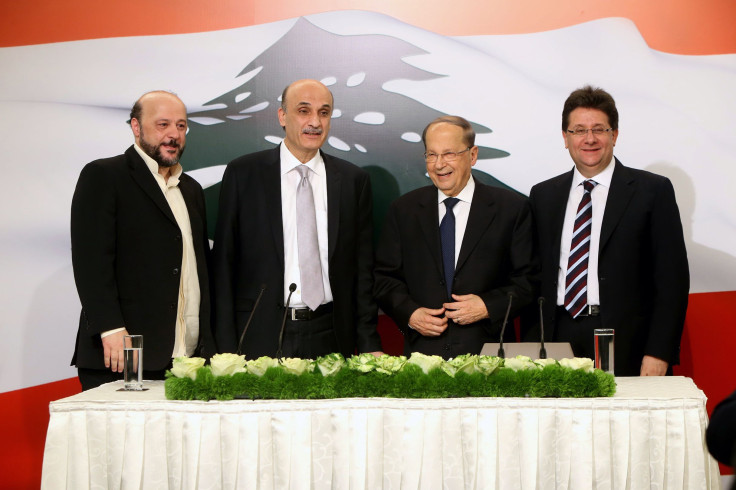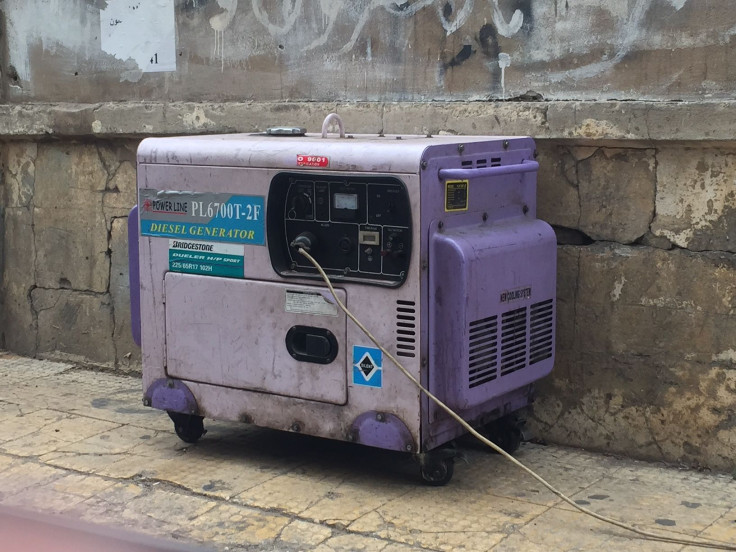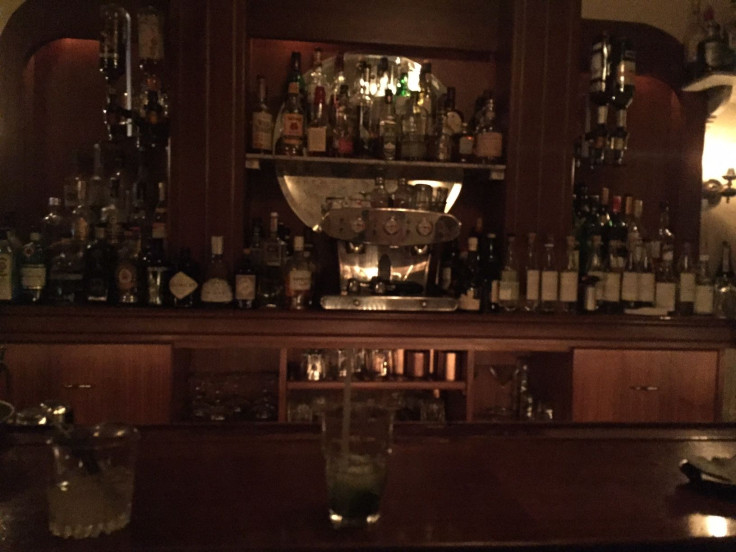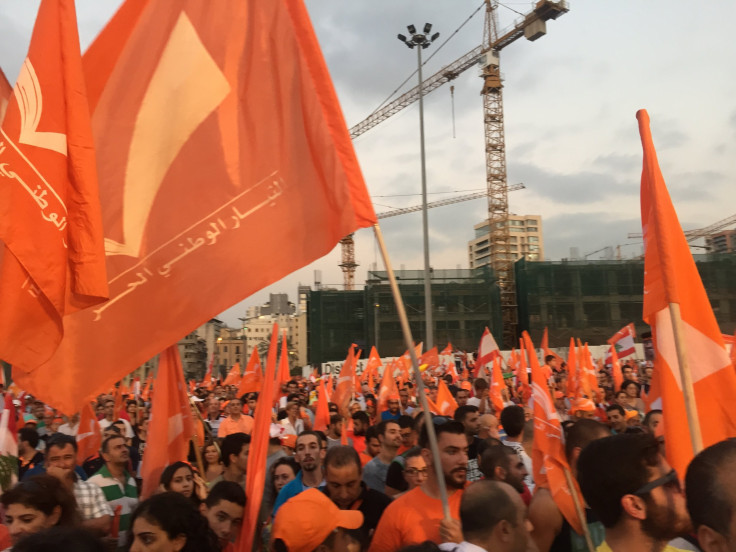Beirut’s Crumbling Infrastructure And Low-Speed Internet Trumps Traditional Politics Ahead Of Long-Awaited Lebanese Presidential Election

BEIRUT — Beirut is a city of contradictions. With its abundance of cafés, bars and vibrant cultural life, this Francophone hub was once known as the Paris of the Middle East — until it was devastated by a 25-year civil war. Two-and-a-half decades later, Beirut’s reputation as a cosmopolitan city has mostly been restored: The downtown streets are lined with high-end fashion designer boutiques, well-dressed young professionals celebrate happy hour in the hipster bar district of Mar Mikhael, and rents in the cobble-stoned district area of Achrafieh are not so different from rents in Western Europe. But unlike Paris or Madrid, Beirut’s residents must contend with severe water shortages, crawlingly slow internet, daily three-hour electricity cuts and a presidential vacuum of nearly two years.
Michel Aoun is the man who is promising to change that. The former Lebanese army general, founder of the Free Patriotic Movement (FPM) political party, is a Christian with the backing of Iran-backed Lebanese Shiite Muslim group Hezbollah. His closest rival, Christian Lebanese Forces (LF) leader Samir Geagea, publicly endorsed him Monday, ensuring Aoun has 64 of the 65 parliamentary votes needed for election. Aoun’s supporters, locally known as Aounists, are confident his party will improve the city’s infrastructure, fight corruption and, most importantly, introduce high-speed internet.
Johnny al-Kattar, 33, is a high school teacher in Beirut. He’s backing Aoun because of the Christian leader’s strong anti-corruption and pro-tech platform. In an interview with International Business Times he said Aoun will bring Lebanon in line with other developed Western nations. “The best countries in the world have corruption, but in these countries thieves go to jail. In Lebanon, the thieves become heroes. I’m sure Aoun will put thieves in [their] right place. That’s the difference.” Kattar says Aoun will succeed in boosting Lebanon’s flagging internet. “I hope he fixes the water and electricity first: We have internet from the Middle Ages.”
It’s a message Aoun and his party members are quick to reiterate. In a Beirut rally for the party in September, Gebran Bassil, the newly appointed leader of the Free Patriotic Movement and Aoun’s son-in-law, declared, “[Under Aoun’s presidency] we will have 3G, 4G and maybe even 5G [internet].”

But not everyone is convinced. Marwan Dahdah, 33, vice president of wealth management at a leading Lebanese bank, has a residence befitting his title. He lives in one of Beirut’s most coveted neighborhoods, in an apartment that would not look out of place in Vogue. His fiancée teaches a pole dancing class, in addition to owning and running two wildly popular restaurants in Beirut, and both travel abroad frequently. But even this power couple, members of Beirut’s metropolitan elite, cannot escape the city’s crumbling infrastructure and corrupt government. Last December, despite heavy rainfall in Beirut, their apartment ran out of running water three times. For Dahdah, running out of water means buying more supplies from the privately owned, large, flatbed trucks that frequent the city’s streets, and asking the building’s concierge to fill up the water pump on his roof.
“Beirut people are pretentious and educated and we like to say we’re the best in the Middle East,” Dahdah told IBT. “But in reality, we have nothing. For some things, we’re still in the Stone Age.” Dahdah remains skeptical that Aoun — or anyone else — can cure Beirut’s ills.
“Some people think [things] will change if the political situation calms down, but I know whoever will come won’t be able to fix it. Since I was born nothing has changed,” Dahdah said. “Since the war, it has been like this, but before it was paradise.”

Slow internet is just one of Beirut’s many examples of weak infrastructure. The most basic need not being fulfilled in Lebanon is water, a problem that “is not that of availability, as much as it is related to the mismanagement and lack of integrity in the sector’s practices,” according to a National Water Integrity Risk Assessment published by the American University of Beirut.
During summer months, and sometimes into the winter, government-run taps in homes around Beirut regularly run dry. Like Dahdah, most residents have to purchase additional water independently and fill their own tanks and pumps. In some areas of Beirut, closer to government facilities, salt water flows through the pipes when the supply runs out. Neither kind is, under any circumstances, drinkable. Roughly a quarter of a typical Lebanese household’s water budget goes to the government and the other 75 percent is spent on private water providers during shortages, according to research from Roland Riachi, a postdoctoral fellow at the Issam Fares Institute.
The water shortage is another political flashpoint for Beirut’s youth. “We don’t have [our] basic needs [met] because our politicians now are thieves,” said Diala Debs, a 23-year-old unemployed university graduate, and ardent Aounist. “[Aoun] won’t do the same thing because he was general of the army and he fought for the Lebanese.”
Debs was one of hundreds of people, clad in FPM’s signature orange, who attended a rally for Aoun in downtown Beirut last September. The rally was scheduled between protests from the grassroots YouStink campaign, which, in September, was holding near-daily demonstrations in downtown Beirut’s Martyr’s Square calling on the government to deal with the city’s growing mountain of trash. The garbage crisis, like most other citywide infrastructure issues, was a result of the government’s failings. Trash began piling up in the streets after the closure of Beirut’s biggest landfill after members of Parliament couldn’t come to an agreement on revenue allocation.
Aoun’s party was pushing a similar agenda to the YouStink campaign, based on eliminating corruption to improve infrastructure, but his critics were skeptical of his intentions.

"It was bad timing and it diverted the attention from the actual cause that needed to be treated. Instead of showing a united country with one flag, [Aoun] had to create an orange wave of people that went against [what] we have been working so hard to achieve,” Marianna Afteem, 27, a freelancer who lives in Beirut, told IBT.
Afteem and Dahdah — and many other city dwellers — have little faith that electing a president, whoever it may be, will do anything to bring Beirut’s infrastructure back up to standard.
Afteem remains convinced that any candidate who is serious about eliminating corruption will not survive Lebanon’s sectarian political system where Christians vote for Christian candidates, Sunnis for Sunni candidates and Shiites for Shiite candidates.
"People like me would vote for that [anti-corruption candidate] but the older — sadly uneducated — generation would still vote for [their sects]. People here don't look at the bigger picture unless the situation becomes deadly.”
© Copyright IBTimes 2024. All rights reserved.





















